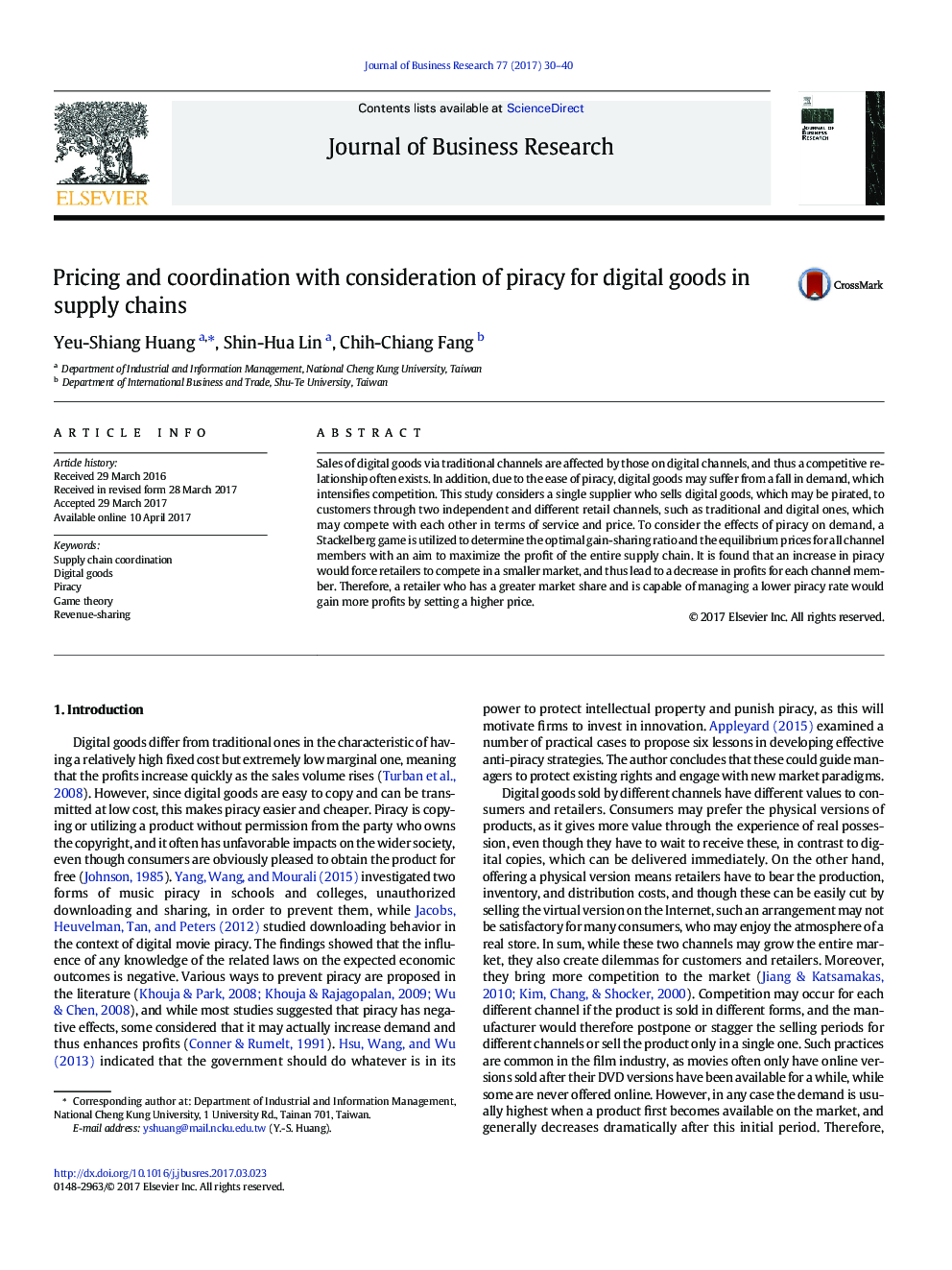| Article ID | Journal | Published Year | Pages | File Type |
|---|---|---|---|---|
| 5109423 | Journal of Business Research | 2017 | 11 Pages |
Abstract
Sales of digital goods via traditional channels are affected by those on digital channels, and thus a competitive relationship often exists. In addition, due to the ease of piracy, digital goods may suffer from a fall in demand, which intensifies competition. This study considers a single supplier who sells digital goods, which may be pirated, to customers through two independent and different retail channels, such as traditional and digital ones, which may compete with each other in terms of service and price. To consider the effects of piracy on demand, a Stackelberg game is utilized to determine the optimal gain-sharing ratio and the equilibrium prices for all channel members with an aim to maximize the profit of the entire supply chain. It is found that an increase in piracy would force retailers to compete in a smaller market, and thus lead to a decrease in profits for each channel member. Therefore, a retailer who has a greater market share and is capable of managing a lower piracy rate would gain more profits by setting a higher price.
Related Topics
Social Sciences and Humanities
Business, Management and Accounting
Business and International Management
Authors
Yeu-Shiang Huang, Shin-Hua Lin, Chih-Chiang Fang,
